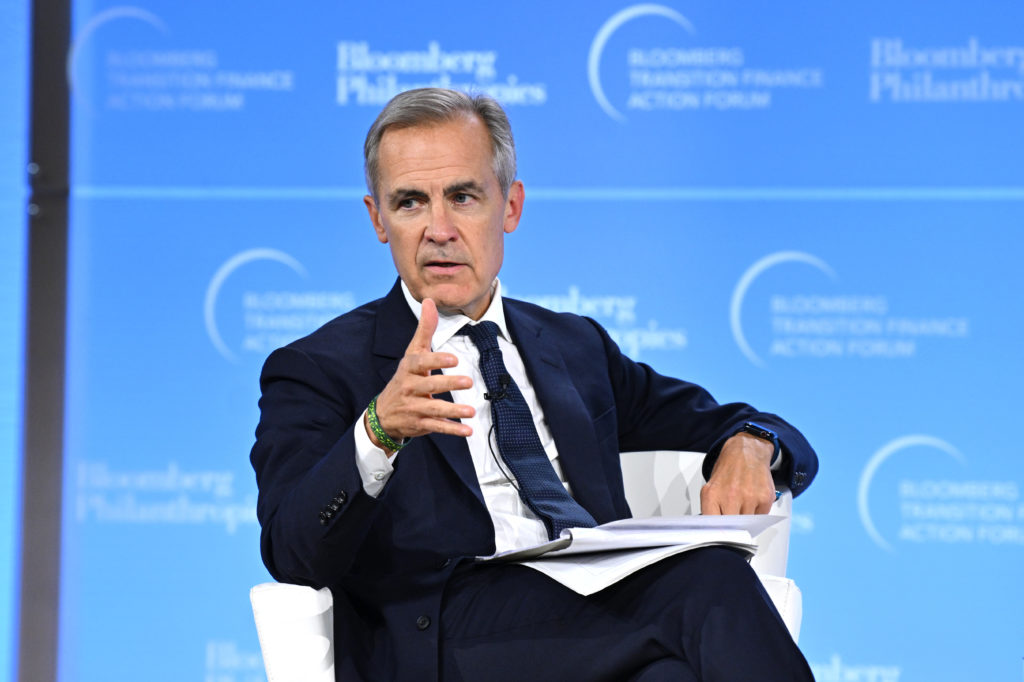Canada’s Prime Minister Mark Carney is taking a calculated stand against Trump’s latest trade war—while quietly rethinking the country’s global economic ties
 Mark Carney (Photo by Bryan Bedder/Getty Images for Bloomberg Philanthropies)
Mark Carney (Photo by Bryan Bedder/Getty Images for Bloomberg Philanthropies)CANADA’S Prime Minister Mark Carney has found himself at the heart of a trade war with the United States.
For Irish observers of the growing imbroglio, there’s added interest: three of Carney’s four grandparents were Irish, from Aughagower in County Mayo.
Carney was previously an Irish passport holder; it’s not clear if he has yet renounced his Irish citizenship since becoming Canadian prime minister; there was no legal or constitutional imperative for him to do so. A Catholic, he has expressed that his Irish heritage is a significant part of his identity. However, he has made it clear that as Canadian prime minister, it is appropriate to hold sole Canadian citizenship.
Aside from his citizenship anomaly, Carney now faces one of the most delicate international challenges imaginable — a geopolitical test that touches both his country of birth and his ancestral homeland.
The current crisis was triggered in early April, when President Donald Trump slapped steep tariffs on Canadian goods, including key exports like steel, aluminium, and cars. In response, Carney retaliated with carefully calibrated measures: a 25% tariff on American vehicles that fall outside the Canada-US-Mexico free trade deal, while deliberately avoiding duties on auto parts to preserve North America’s interconnected manufacturing base.
Carney emphasised that these measures are “carefully calibrated and targeted” to maximise impact on the U.S. while minimising harm to Canada. He stated that the tariffs would not apply to auto parts, acknowledging the benefits of the integrated production system within North America.
More than just economic tit-for-tat, Carney’s response has been framed as principled and strategic. He rolled out a CA$ (Canadian dollars) 2billion support fund to protect Canadian workers and industries affected by the tariffs.
His language, too, has been fearless—he accused Trump of “misguided protectionism” and warned the U.S. could tip itself into recession, a downturn that would inevitably spill over into Canada.
The fallout has already begun.
Major carmaker Stellantis temporarily closed its plant in Windsor, Ontario, this month affecting over 3,500 workers, AP News has confirmed.
Yet Carney’s firm but composed response has earned cross-party backing at home, with even conservative Ontario Premier Doug Ford endorsing his approach and showing a collaborative approach to the situation.
But the longer-term implications may be more significant. Carney has made clear that Canada must lessen its economic reliance on the U.S., hinting at deeper ties with Europe and Mexico.
For Irish policymakers and exporters, this could open the door to closer commercial engagement with Ottawa—especially given Carney’s heritage and possible dual passport status, though he hasn’t publicly confirmed whether he still holds Irish citizenship. If Ireland experiences a hit due to the US tariffs, perhaps new avenues will open up with Canada.
Carney’s past roles—as Governor of both the Bank of Canada and the Bank of England—have given him an unusually global outlook. Now, facing one of the most significant economic confrontations of his political career, he’s drawing on that experience.
